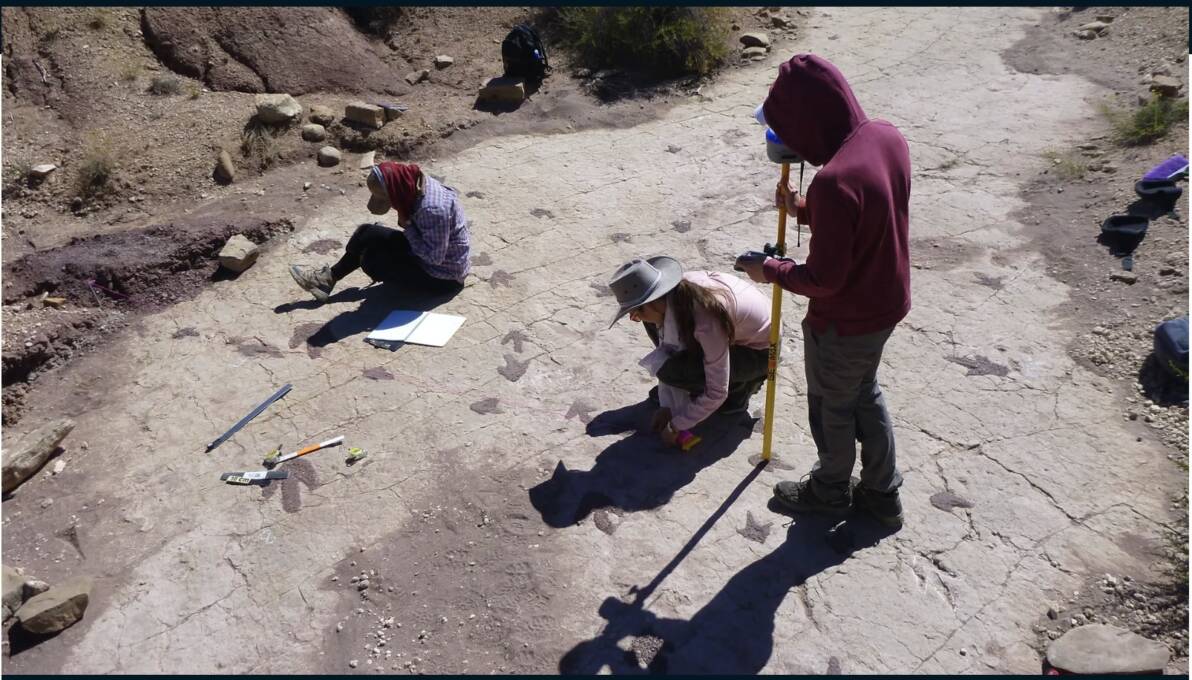View an in-depth discussion of God is Faithful! in the Hope Sabbath School class led by Pastor Derek Morris.
Click on the image below to view the video:
<
With thanks to Hope Channel – Television that will change your life.
Closer To Heaven
|
|
|
By admin
View an in-depth discussion of God is Faithful! in the Hope Sabbath School class led by Pastor Derek Morris.
Click on the image below to view the video:
<
With thanks to Hope Channel – Television that will change your life.
By admin
Daily Lesson for Wednesday 17th of December 2025
Israel already has experienced the Lord’s anger during the wilderness wanderings (Numbers 11:33, Numbers 12:9) as well as in the Promised Land (Joshua 7:1) and was fully aware of the consequences of provoking Yahweh’s anger by flagrantly breaking the covenant.
These verses represent the climax of the severity of Joshua’s rhetoric. It is shocking to hear that the Lord will destroy Israel, as the same term has been previously used to refer to the annihilation of the Canaanites. As surely as the promises of the Lord have been faithfully fulfilled concerning Israel’s blessing, the curses of the covenant (Leviticus 26:1-46, Deuteronomy 28:1-68) also will become true if the Israelites reject the covenant. In light of the dispossession and destruction of the Canaanites, these verses demonstrate once again that Yahweh is ultimately the judge of all the earth. He declares war against sin, irrespective of where it is found. Israel was not sanctified, and did not acquire special merits, through participation in holy war any more than pagan nations did when they later became the means of Yahweh’s judgment against the chosen nation.
It lies within Israel’s power of choice to make the glorious certainties of the past the foundation for facing the future.
At first glance, the biblical teaching on God’s anger seems to be incompatible with the affirmation that God is love (John 3:16, 1 John 4:8). Yet, it is exactly in the light of God’s wrath that the biblical doctrine of God’s love becomes even more relevant. First, the Bible presents God as loving, patient, long-suffering, and ready to forgive (Exodus 34:6, Micah 7:18). However, in the context of a world affected by sin, the wrath of the Lord is the attitude of His holiness and righteousness when confronted by sin and evil. His wrath is never an emotional, revengeful, unpredictable overreaction. The New Testament teaches that Christ became sin for us (2 Corinthians 5:21), and through His death we have been reconciled with God (Romans 5:10). Whoever believes in Him will not have to face God’s wrath (John 3:36, Ephesians 2:3, 1 Thessalonians 1:10). The concept of the wrath of God presents God as the righteous judge of the universe and the One who upholds the cause of justice (Psalms 7:11, Psalms 50:6, 2 Timothy 4:8).
By admin
Monday’s Sabbath School lesson asks, “With so many wonderful promises before us, why do we still find it so easy to sin?”
 Personally, I am increasingly aware of the reality of that old hymn: “I Need Thee Every Hour.” When I was younger, I would sing this song without appreciating the gravity of my need for Christ moment by moment. I would read my Bible and pray in the morning, and later I would be surprised at what I would find myself saying or doing. I felt like a hypocrite. How could I read my Bible and pray and then, just a couple of hours later, find myself in such a mess? I have now concluded that I am not a hypocrite. I need Jesus every hour of my life, moment by moment, and not just one hour in the morning. I realized I was trying to be a golf cart when in reality I am a trolley car. A golf cart can charge its batteries in the morning and then run all over the golf course on its own power the rest of the day. Not me. I am a trolley car. A trolley car must remain connected to the cable throughout the day; otherwise, it cannot move a single inch. Likewise, I need to be connected to Jesus moment by moment, or I will fall into trouble.
Personally, I am increasingly aware of the reality of that old hymn: “I Need Thee Every Hour.” When I was younger, I would sing this song without appreciating the gravity of my need for Christ moment by moment. I would read my Bible and pray in the morning, and later I would be surprised at what I would find myself saying or doing. I felt like a hypocrite. How could I read my Bible and pray and then, just a couple of hours later, find myself in such a mess? I have now concluded that I am not a hypocrite. I need Jesus every hour of my life, moment by moment, and not just one hour in the morning. I realized I was trying to be a golf cart when in reality I am a trolley car. A golf cart can charge its batteries in the morning and then run all over the golf course on its own power the rest of the day. Not me. I am a trolley car. A trolley car must remain connected to the cable throughout the day; otherwise, it cannot move a single inch. Likewise, I need to be connected to Jesus moment by moment, or I will fall into trouble.
Of course this does not mean studying the Bible in my office all day long. What it does mean is this.
There is another song I am thinking about now, that we sang way back in Cradle Roll. “Oh, be careful, little feet, where you go. Oh, be careful, little ears, what you hear. Oh, be careful, little eyes, what you see. For the Father up above is looking down in love, oh be careful little eyes what you see.” Do you remember that song? We sang it as little children in Cradle Roll. I don’t know why we don’t still sing it as adults. “We need Thee Every Hour,” so we can be careful what we see, what we hear and where we go.
“I Need Thee Every Hour” is not a cute song. It’s the desperate, anguished cry of my soul.
By admin

16 December 2025 | Sometimes, one to two weeks is all it takes to change a life. Seven widows from the Kukum Seventh-day Adventist Church in Honiara, Solomon Islands heard of Adventist Disaster Relief Agency’s (ADRA) Cocoa Farmers project and asked to take part. According to ADRA, “The Sustainable Economic and Agriculture Solutions (SEAS) for […] Source: https://atoday.org/adra-cocoa-farmers-project-empowers-citizens-in-solomon-islands/
By admin

15 December 2025 | Raúl Esperante, senior scientist at The Geoscience Research Institute (GRI), published a landmark article in the open-access journal PLOS One regarding what is now considered one of the most extensive Dinosaur tracksites. Containing over 16,000 dinosaur footprints at the Carreras Pampas tracksite in Bolivia, the find has made a new record, […] Source: https://atoday.org/new-dinosaur-tracksite-in-bolivia-leads-to-significant-paleontological-research/
